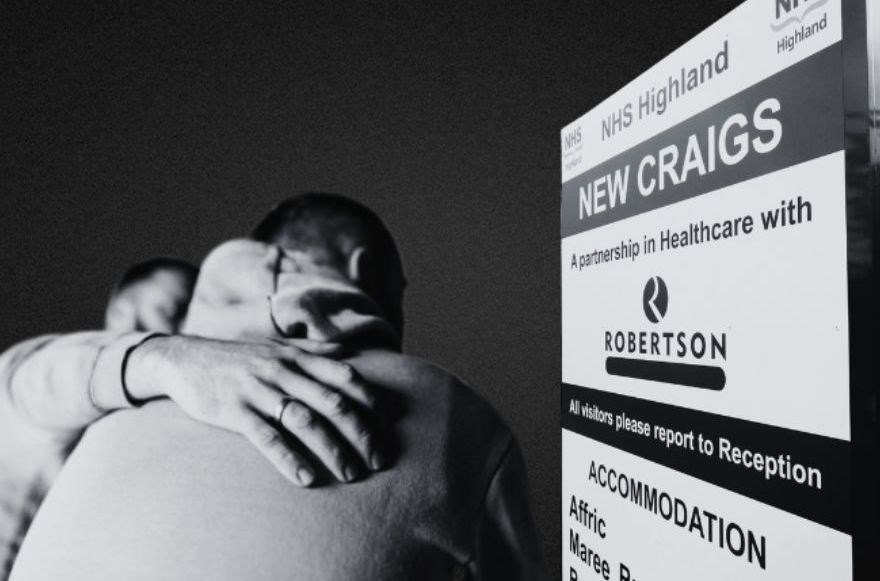Health
Mental Health Clinicians Speak Out on Impact of Patient Loss

Mental health professionals at New Craigs, the only psychiatric hospital in the Highlands, have opened up about the profound emotional toll on staff when a patient takes their own life. This conversation follows the tragic death of Will Ogilvy in 2024, whose mother, Jacqui Waring, has been advocating for greater awareness and support for mental health care providers.
For those working in psychiatric care, the loss of a patient is not merely a statistic; it is a personal tragedy. Dr. Neil McNamara, clinical director of mental health services, and Jonathan Davies, associate lead nurse for mental health, have emphasized the emotional burden carried by staff. Their insights shed light on the often-overlooked challenges faced by mental health clinicians.
Emotional Impact of Patient Loss
Mr. Davies articulated the unique nature of mental health care, stating, “What we do is mainly done through therapeutic relationships.” This connection fosters a deep understanding between clinicians and patients. When a patient dies, the impact on staff can be more profound than in other areas of medicine. He explained that mental health professionals often engage closely with families, amplifying the emotional stakes in their work.
Dr. McNamara described these situations of loss as “a shock and a tragedy,” noting that staff experience the same emotional responses as anyone else. “There will be a sadness, a sorrow for what has been lost and missed opportunities,” he said. He also acknowledged the feelings of guilt that often accompany such tragedies. “You question yourself about whether you did everything you could have done,” he added, emphasizing the weight of this burden on mental health professionals.
Support and Professional Responsibilities
Despite the emotional toll, Dr. McNamara pointed out that mental health professionals recognize this challenge as “part and parcel of your working life.” They understand the need to balance their profound emotional reactions with professional obligations. The process of self-reflection is critical for staff to determine whether losses were predictable or if changes are necessary to improve patient care.
Dr. McNamara noted that this soul-searching is essential not only for processing grief but also for making necessary adjustments to care protocols. He commended Ms. Waring for her courageous efforts to work with NHS Highland to implement changes following her son’s death. “I’m really grateful to her for doing that,” he stated, recognizing the importance of breaking down stigma and engaging with families in the healing process.
Both clinicians emphasized the need for ongoing improvements in communication with families, stating that establishing dialogue from the outset can be valuable. As they continue to navigate the complexities of mental health care, Dr. McNamara and Mr. Davies remain committed to learning from each experience to enhance patient outcomes and support for staff.
The conversation surrounding mental health care is crucial, especially as the stigma surrounding mental illness persists. The experiences shared by professionals at New Craigs illustrate the urgent need for systemic support, both for patients and the dedicated clinicians who care for them.
-

 Entertainment2 months ago
Entertainment2 months agoIconic 90s TV Show House Hits Market for £1.1 Million
-

 Lifestyle4 months ago
Lifestyle4 months agoMilk Bank Urges Mothers to Donate for Premature Babies’ Health
-

 Sports3 months ago
Sports3 months agoAlessia Russo Signs Long-Term Deal with Arsenal Ahead of WSL Season
-

 Lifestyle4 months ago
Lifestyle4 months agoShoppers Flock to Discounted Neck Pillow on Amazon for Travel Comfort
-

 Politics4 months ago
Politics4 months agoMuseums Body Critiques EHRC Proposals on Gender Facilities
-

 Business4 months ago
Business4 months agoTrump Visits Europe: Business, Politics, or Leisure?
-

 Lifestyle4 months ago
Lifestyle4 months agoJapanese Teen Sorato Shimizu Breaks U18 100m Record in 10 Seconds
-

 Politics4 months ago
Politics4 months agoCouple Shares Inspiring Love Story Defying Height Stereotypes
-

 World4 months ago
World4 months agoAnglian Water Raises Concerns Over Proposed AI Data Centre
-

 Sports4 months ago
Sports4 months agoBournemouth Dominates Everton with 3-0 Victory in Premier League Summer Series
-

 World4 months ago
World4 months agoWreckage of Missing Russian Passenger Plane Discovered in Flames
-

 Lifestyle4 months ago
Lifestyle4 months agoShoppers Rave About Roman’s £42 Midi Dress, Calling It ‘Elegant’









